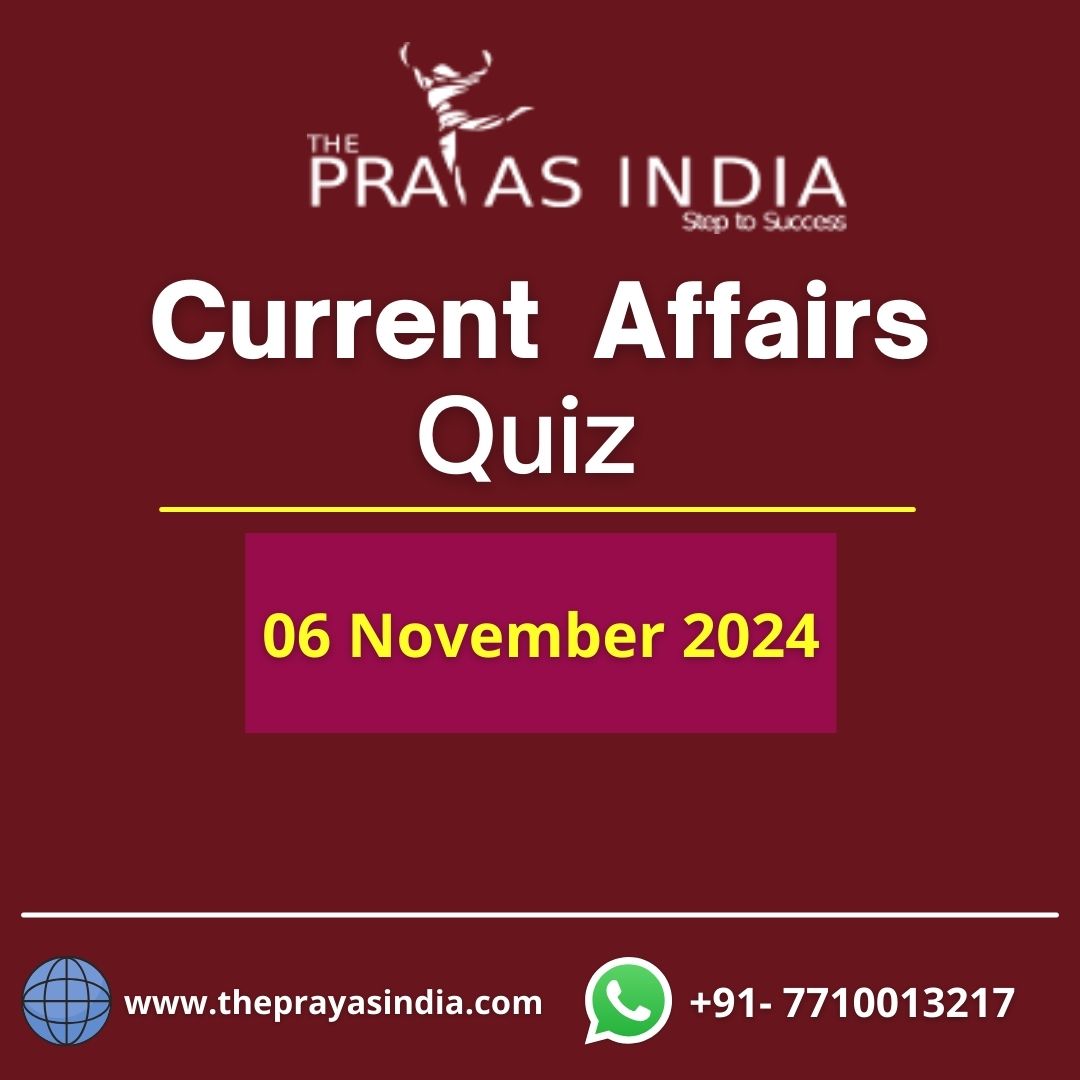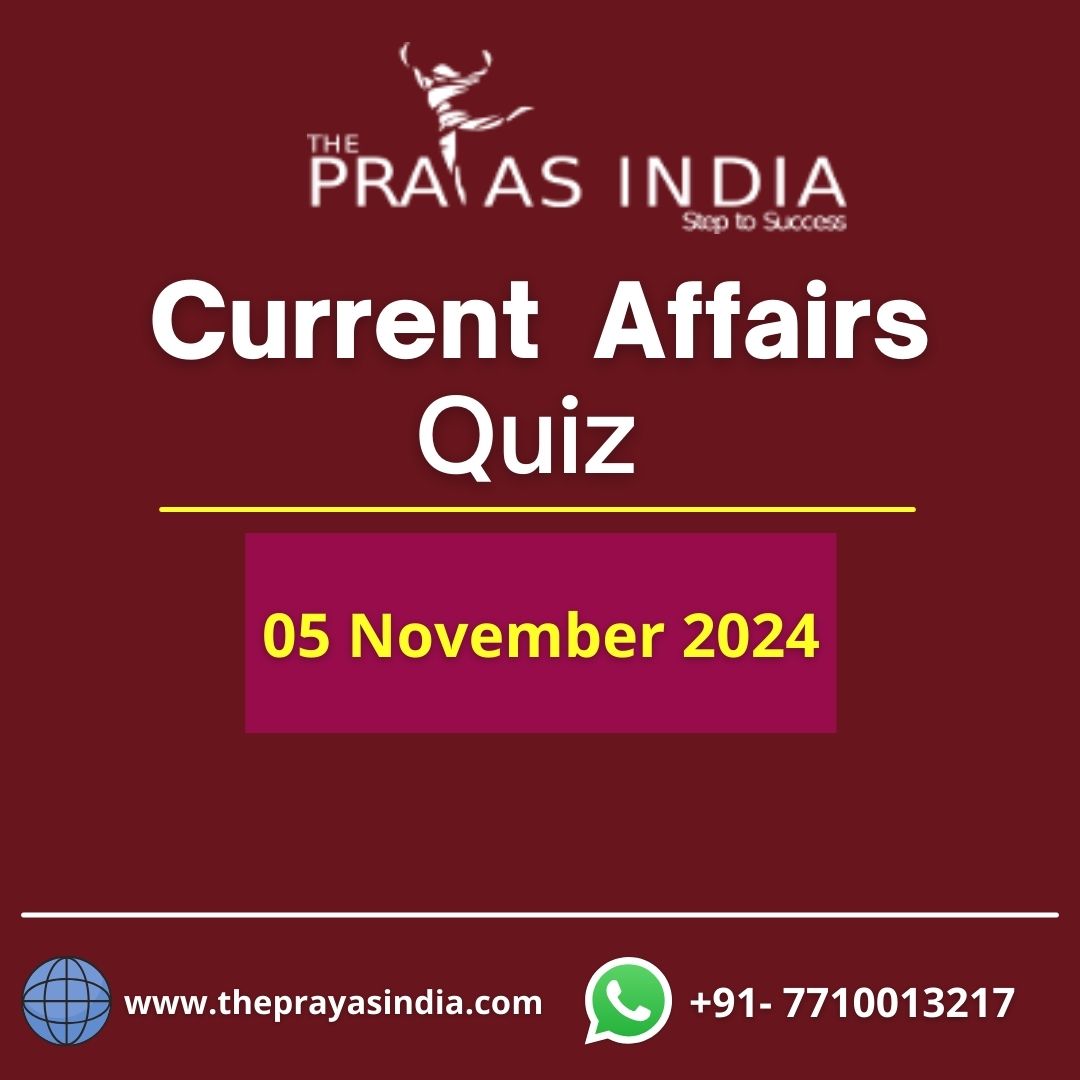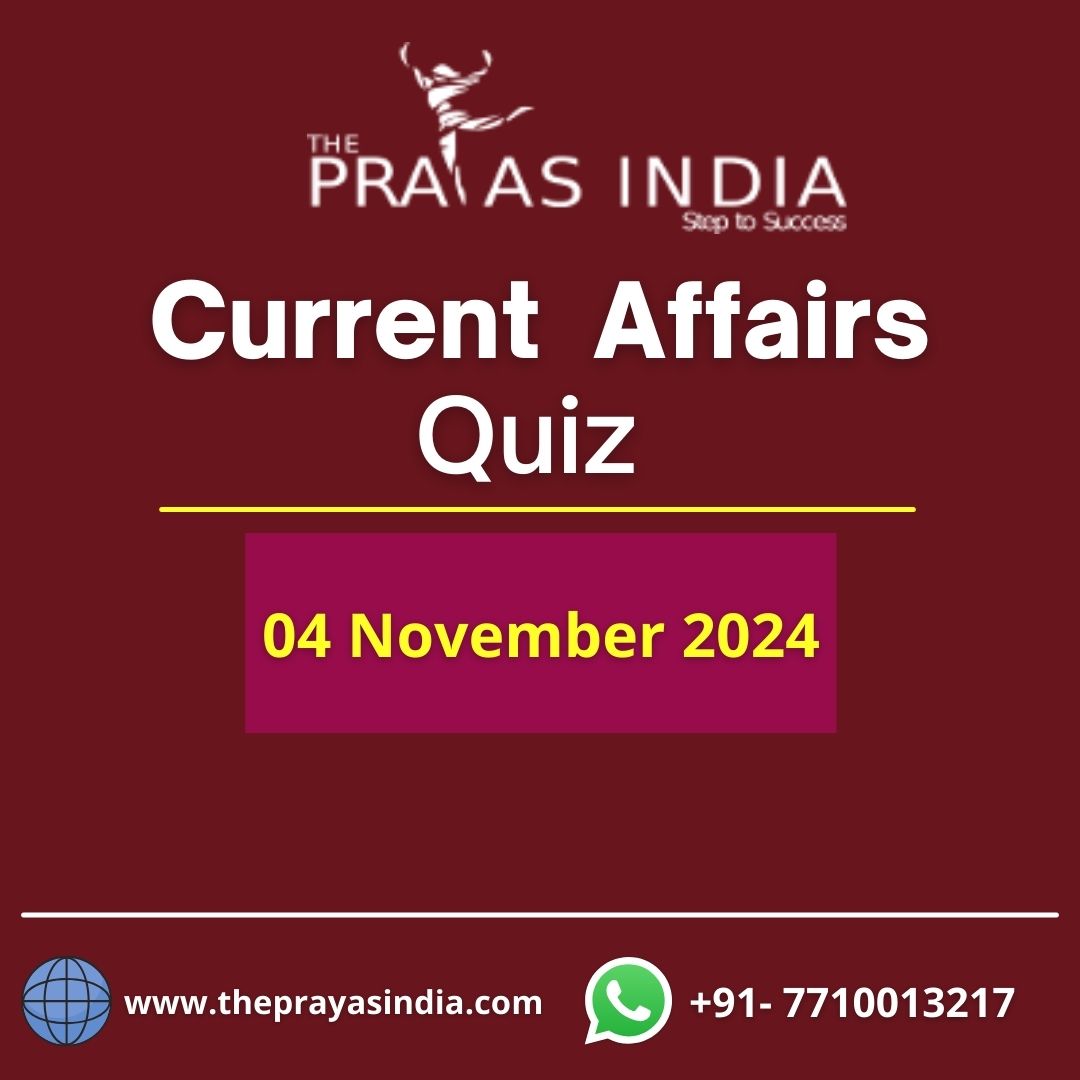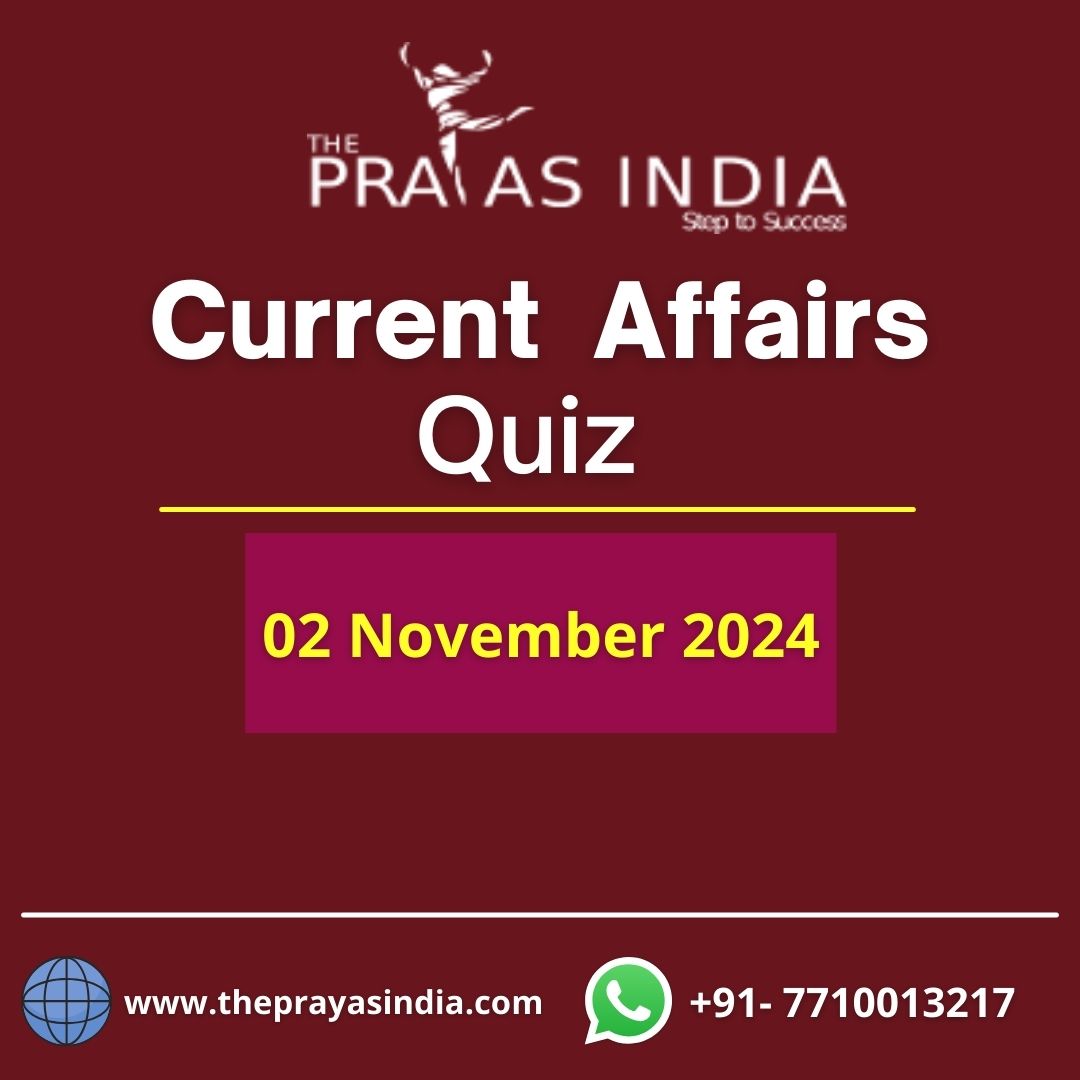Q1. Which of the following statements is not correct regarding the Museums Grant Scheme?
- The Ministry of Culture provides financial assistance to autonomous bodies and Trusts registered under the Societies Act 1860 for setting up new Museums.
- It aims to develop at least 1 Central / State Government Museum located in the State Capital each year.
- For the establishment and development of the district and regional museums, the maximum amount of financial assistance that can be provided is Rs.10 crore.
- None of the above
D : Explanation
- Museums Grant Scheme
- The Ministry of Culture provides financial assistance under the Scheme to the State Governments and Societies, Autonomous bodies, Local Bodies, and Trusts registered under the Societies Act 1860, for setting up new Museums. Hence, statement 1 is correct. It aims to strengthen and modernize the existing museums at the Regional, State, and District level. The scheme also aims to develop at least 1 Central / State Government Museum located in the State Capital each year. Hence, statement 2 is correct.
Components:
Establishment and Development of District and Regional Museums: Under this component, museums have been classified into two categories:
- Category-II: all other Museums.Category-I: Government-owned State level Museums and renowned Museums with the exquisite collection. The maximum amount of financial assistance provided under this Component is limited to Rs.10 crore. Hence, statement 3 is correct.
- Development of Museums in State Capitals:
- Financial assistance under this component is provided to existing renowned museums of the Central or State Government located in the Capital cities.The maximum financial assistance under this component is limited to Rs. 15 Crore per museum.
- Establishment and Development of Large-Scale Museums in Public Private Partnership Mode:
- Under this component, it is proposed to establish large scale museums as joint ventures with State Governments and the civil society in Public Private Partnership Mode.The maximum financial assistance provided under this component is 40% of the project cost subject to a maximum of Rs. 20 Crore per museum. Hence, option (d) is the correct answer.
Q2. Consider the following statements with reference to Palm Oil:
- It is derived from the mesocarp of the fruit of the oil palms.
- Indonesia and Malaysia together account for almost 90% of the global palm oil production.
Which of the statements given above is/are correct?
- 1 only
- 2 only
- Both 1 and 2
- Neither 1 nor 2
C : Explanation
- Palm Oil:
- Palm oil is an edible vegetable oil derived from the mesocarp (reddish pulp) of the fruit of the oil palms. Hence statement 1 is correct.It is used as cooking oil, and in everything from cosmetics, processed foods, cakes, chocolates, spreads, soaps, shampoo, and cleaning products to biofuel.The use of crude palm oil in making biodieselis being branded as ‘green diesel’.Indonesia and Malaysia together account for almost 90% of the global palm oil production, with Indonesia producing the largest quantity at over 45 million Tonnes in 2021. Hence statement 2 is correct.The oil palm industry has come under criticism for what are unsustainable production practices leading to deforestation, and exploitative labor practices carried forward from the colonial era.However, palm oil is preferred by many as it is inexpensive, oil palms produce more oil per hectare than some other vegetable oil plants like soybean.
Q3. Global Security Initiative has been recently in the news. It is launched by the following countries?
- European Union
- China
- Quad Grouping
- Commonwealth Nations
B – Explanation:
- Recently, a new Global Security Initiative (GSI) was put forward by the Chinese President.The GSI looks to counter the US Indo-Pacific strategy and the Quad (India, US, Australia, Japan grouping).
- GSI calls for a“common, comprehensive, cooperative and sustainable” security and building an Asian security model of mutual respect, openness and integration”.China held that the Global security initiative is envisaged to uphold the principle of “indivisible security”. The principle of “indivisible security” means that no country can strengthen its own security at the expense of others. Hence, option (b) is the correct answer.
Q4. Consider the following statements:
- Price of Oil in International Market
- Central Excise Duty
- State Tax (VAT)
Which of the above factors are components of retail prices of petrol and diesel?
- 1 and 3 only
- 2 only
- 2 and 3 only
- 1, 2 and 3
D : Explanation
- Retail prices of petrol and diesel are made up of mainly 3 components:
- Base price (reflecting cost of international oil)Central Excise DutyState Tax (VAT)Central and state taxes form a major chunk of the price of petrol and diesel in India.Excise duty is constant all over India, state taxes (sales tax and value-added tax) vary depending upon the rates levied by different state governments.These taxes make fuel even more costly for consumers. Hence, option (d) is the correct answer.
Q5. Consider the following statements regarding cyber security:
- Trojan horses are used to create back-doors so that a hacker can have access to the secure network.
- Unlike viruses, computer worms are malicious programs that copy themselves from system to system, rather than infiltrating legitimate files.
Which of the above statements is/are correct?
- 1 only
- 2 only
- Both 1 and 2
- None
C : Explanation
- Virus: A program that can infect other programs by modifying them to include a possible evolved copy of itself.Worms: Disseminated through computer networks, unlike viruses, computer worms are malicious programs that copy themselves from system to system, rather than infiltrating legitimate files.Hence statement 2 is correct.Trojans: Trojan or trojan horse is a program that generally impairs the security of a system. Trojans are used to create back-doors (a program that allows outside access into a secure network) on computers belonging to a secure network so that a hacker can have access to the secure network. Hence statement 1 is correct.
Q6. Consider the following statements:
- In Indra Sawhney vs Union of India, the Supreme Court held that reservations under Article 16(4) could only be provided at the time of entry into government service but not in matters of promotion.
- In Nagaraj case the Supreme court said that the State is bound to make reservation for the SCs and STs in promotions.
Which of the above statements is/are not correct?
- 1 only
- 2 only
- Both 1 and 2
- Neither 1 nor 2
B – Explanation:
- Indra Sawhney vs Union of India and M Nagraj case:
- In its landmark 1992 decision in Indra Sawhney vs Union of India, the Supreme Court had held that reservations under Article 16(4) could only be provided at the time of entry into government service but not in matters of promotion. Hence statement 1 is correct.It added that the principle would operate only prospectively and not affect promotions already made and that reservation already provided in promotions shall continue in operation for a period of five years from the date of the judgment. It also ruled that the creamy layer can be and must be excluded.On June 17, 1995, Parliament, acting in its constituent capacity, adopted the seventy-seventh amendment by which clause (4A) was inserted into Article 16 to enable reservation to be made in promotion for SCs and STs. The validity of the seventy-seventh and eighty-fifth amendments to the Constitution and of the legislation enacted in pursuance of those amendments was challenged before the Supreme Court in the Nagaraj case.Upholding the validity of Article 16 (4A), the court then said that it is an enabling provision. “The State is not bound to make reservation for the SCs and STs in promotions. But, if it seeks to do so, it must collect quantifiable data on three facets — the backwardness of the class; the inadequacy of the representation of that class in public employment; and the general efficiency of service as mandated by Article 335 would not be affected”. Hence statement 2 is not correct.
Q7. Operation Searchlight is related to:
- Bangladesh Liberation War
- Sino-Indian War
- First Kashmir War
- Sri Lankan Civil War
A : Explanation
- Bangladesh Liberation War began after the Pakistani military junta based in West Pakistan launched Operation Searchlight against the people of East Pakistan on the night of 25 March 1971. Hence, option (a) is the correct answer.
Q8. Consider the following statements with regards to Pawan Hans Ltd:
- DRDO owns a 49% stake in Pawan Hans.
- It is recognized as a ‘Miniratna’ by the Government of India.
- The organization has been granted Air Operators Permit for Scheduled Operations under the UDAN II scheme.
Choose the correct code:
- 1 and 2 only
- 2 and 3 only
- 1 and 3 only
- All of the above
B – Explanation:
- Pawan Hans is a 51:49 joint-venture between the government and state-owned Oil & Natural Gas Corp Ltd. Hence statement 1 is not correct.Pawan Hans, a Mini Ratna CPSE of the Government of India is under the Ministry of Civil Aviation. Hence statement 2 is correct.It has been playing a pivotal role in the growth of General Civil Aviation and helicopter services in areas of national importance by connecting remote and inaccessible areas of North East, Islands of A&N and Lakshadweep providing strategic off-shore transport services to the Oil & Gas Sector since 1985. PHL has been granted an Air Operators Permit for Scheduled Operations. Scheduled Flights under RCS UDAN II have commenced in the state of Himachal Pradesh and services are planned to be extended in the states of Uttarakhand, Assam and Manipur shortly. Hence statement 3 is correct.
Q9. Consider the following statements with regards to Section 124A of the IPC:
- It defines sedition as an offence committed when “any person by words, either spoken or written, or by signs, or by visible representation, or otherwise, brings or attempts to bring into hatred or contempt, or excites or attempts to excite disaffection towards the government established by law in India”.
- A person charged under this law is barred from a government job.
- Sedition is a non-bailable offence.
Choose the correct code:
- 1 and 2 only
- 2 and 3 only
- 1 and 3 only
- All of the above
D : Explanation
- IPC Section 124 A says, “Whoever, by words, either spoken or written, or by signs, or by visible representation, or otherwise, brings or attempts to bring into hatred or contempt, or excites or attempts to excite disaffection towards the Government estab lished by law in India shall be punished with [im prisonment for life], to which fine may be added, or with impris onment which may extend to three years, to which fine may be added, or with fine.”
- Punishment for the Sedition Offence
- It is a non-bailable offence.Imprisonment up to three years to a life term, to which fine may be added.The person found guilty of this offence is not eligible for any government job.Hence all the statements are correct.
Q10. Consider the following statements with regards to the corporatisation of the Ordnance Factory Board (OFB):
-
- The assets of the OFB including its 41 ordnance factories were transferred to seven new firms.
- The Union government owns a 51% stake in all the seven new firms.
- Ordnance Factory Board’s headquarters is in Kolkata.
- 1 and 2 only
- 2 and 3 only
- 1 and 3 only
- All of the above
C : Explanation
- The Ordnance Factory Board (OFB) was set up in 1801.It ceased to exist on October 1 2021, and the assets, staff, and operations of its41 ordnance factories will be transferred to seven defence public sector units (DPSUs). Hence statement 1 is correct.The 41 factories, assets, employees and management of the OFB were transferred to the seven new 100% government-owned companies, which are now supposed to be the main suppliers of arms, ammunition and clothing to the 15-lakh strong armed forces. Hence statement 2 is not correct.Ordnance Factory Board’s headquarters is in Kolkata. Hence statement 3 is correct.




